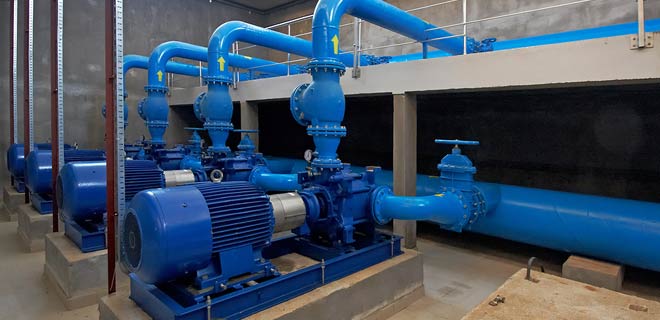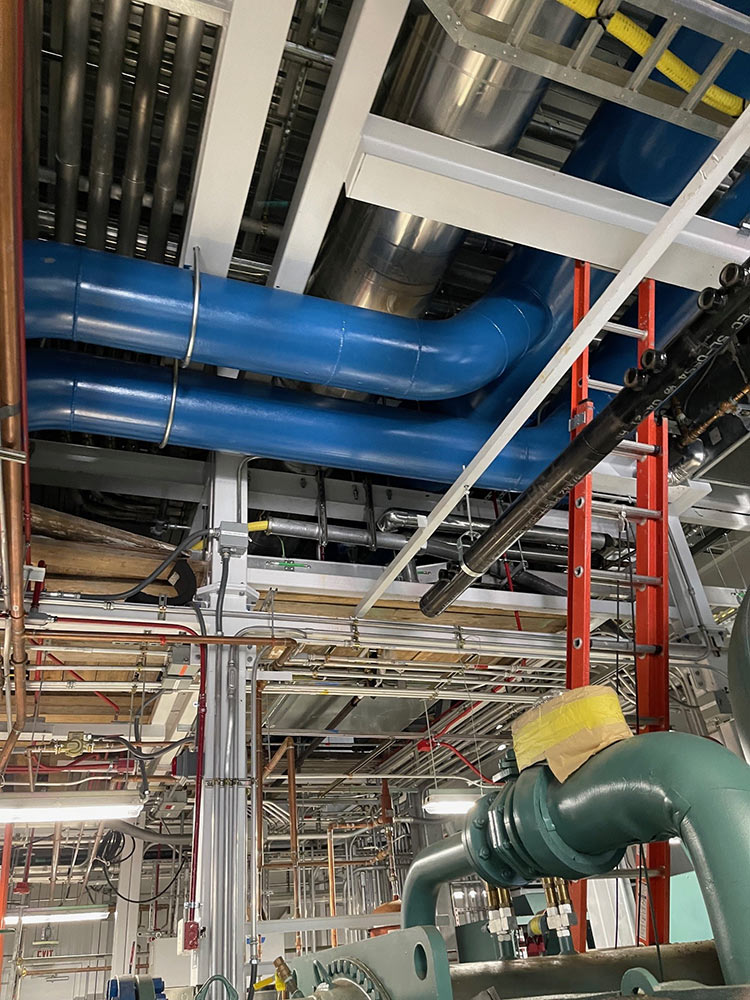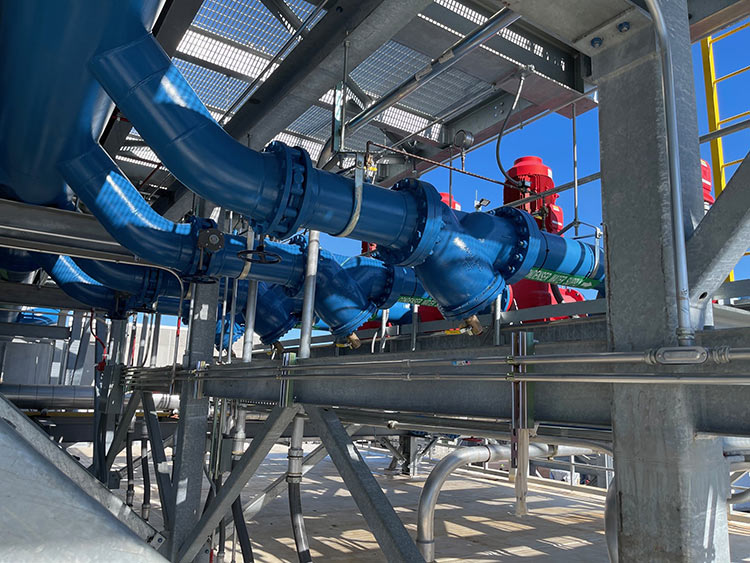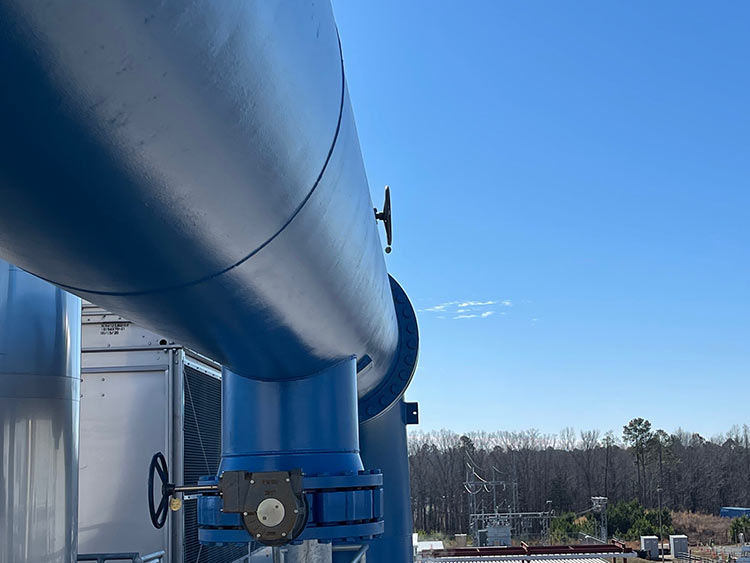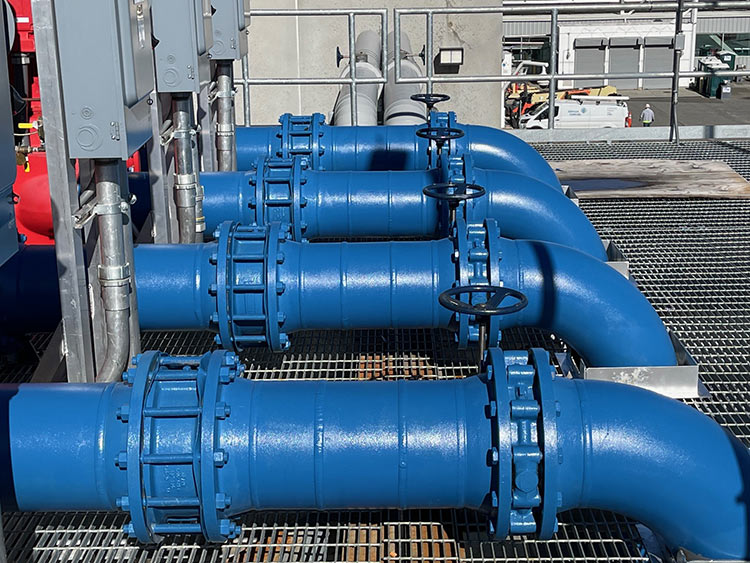Industrial corrosion control is an important part of any industrial facility’s maintenance plan. Callaway Industrial Services can help industrial facilities prevent and solve corrosion issues on steel structures and other metals. Callaway proudly provides corrosion control services adhering to regulatory standards including industrial specialty paint coatings, dry ice blasting services, electrostatic painting and much more.
Industrial Corrosion Control: Protecting Your Assets for Long-Term Success
Corrosion is a common challenge faced by industries across various sectors. It can lead to equipment failure, increased maintenance costs, and compromised safety. Implementing effective industrial corrosion control measures is crucial to safeguarding your assets and ensuring long-term operational success. In this article, we will explore the importance of industrial corrosion control and provide valuable insights on how to protect your equipment and facilities.
1. Understanding Industrial Corrosion:
Industrial corrosion refers to the deterioration of materials due to chemical or electrochemical reactions with their surrounding environment. Factors such as moisture, temperature, chemical exposure, and atmospheric conditions can accelerate the corrosion process. By comprehending the specific corrosion mechanisms relevant to your industry, you can develop tailored strategies to combat corrosion effectively.
2. The Impact of Corrosion on Industrial Assets:
Industrial assets, including machinery, pipelines, storage tanks, and infrastructure, are susceptible to corrosion. The consequences of corrosion can be severe and costly:
- Equipment Failure: Corrosion can weaken the structural integrity of equipment, leading to failures, breakdowns, and production disruptions.
- Increased Maintenance Costs: Corrosion-related repairs and maintenance consume significant resources, impacting operational budgets.
- Safety Hazards: Corroded equipment poses safety risks to workers and the environment, potentially resulting in accidents, leaks, or spills.
- Reduced Lifespan: Untreated corrosion accelerates the aging process of assets, shortening their lifespan and requiring premature replacements.
3. Implementing Effective Corrosion Control Strategies:
To mitigate the detrimental effects of corrosion, consider the following strategies:
- Coating Systems: Applying protective coatings is a widely used method to prevent corrosion. Selecting the appropriate coating system based on the specific environmental conditions is crucial for long-lasting protection.
- Cathodic Protection: This technique involves using sacrificial anodes or impressed current to create an electrochemical barrier, shielding the metal from corrosion.
- Material Selection: Choosing corrosion-resistant materials at the design stage can significantly reduce the risk of corrosion and extend the lifespan of equipment.
- Environmental Controls: Maintaining optimal environmental conditions, including humidity and temperature, can minimize corrosion rates.
- Regular Inspections and Maintenance: Conducting routine inspections, corrosion rate monitoring, and preventive maintenance allows for early detection and timely intervention.
4. The Role of Professional Corrosion Control Services:
While implementing in-house corrosion control measures is essential, partnering with professional corrosion control service providers offers several advantages:
- Expertise and Experience: Corrosion control specialists possess in-depth knowledge of industry best practices, enabling them to develop effective and customized solutions.
- Compliance with Standards: Professionals ensure adherence to relevant industry standards and regulations, avoiding compliance issues.
- Cost Efficiency: Corrosion control experts can recommend the most cost-effective solutions, minimizing maintenance expenses and equipment downtime.
- Long-Term Protection: Professional corrosion control services are designed to provide comprehensive, long-term protection for your assets, maximizing their lifespan and performance.
Industrial corrosion control is a critical aspect of maintaining operational efficiency, safety, and long-term success. By understanding the impact of corrosion, implementing effective strategies, and partnering with professional corrosion control services, you can safeguard your assets, minimize costs, and ensure uninterrupted productivity. Prioritize corrosion control as an integral part of your maintenance and asset management strategy to protect your investments and achieve sustainable growth in your industry.

